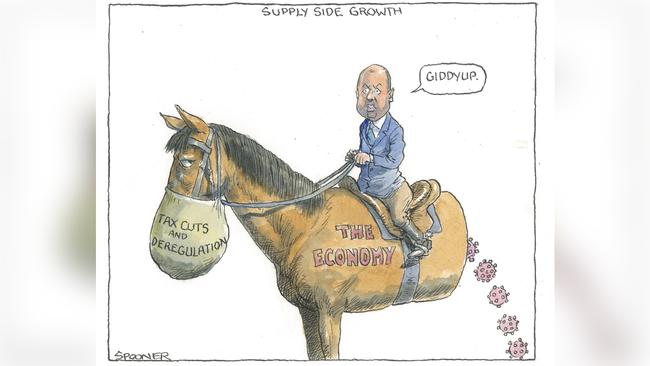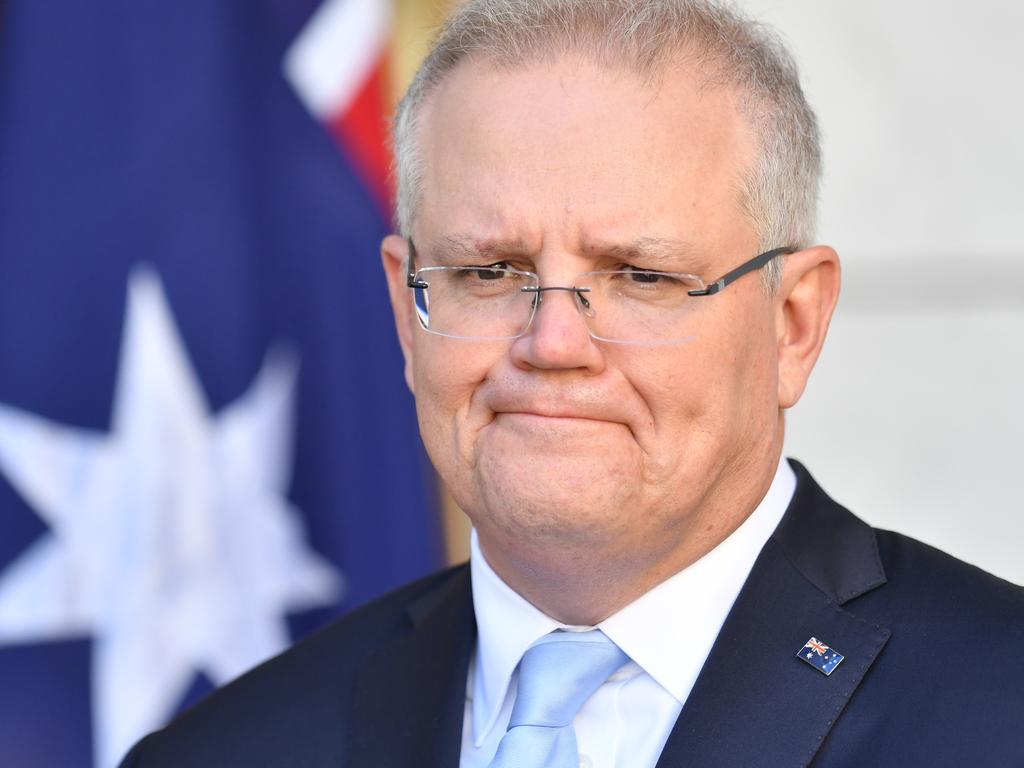
While cashflow and earnings are normally the most watched indicators in this time of stress, the balance sheet holds the key, particularly in sectors affected by COVID-19. These include tourism, travel, investment companies and insurance.
The rules say you cannot carry assets above fair value and some of the big superannuation funds have cut valuations on their unlisted assets, which in turn cuts returns.
Wingrove was a valuer in his early days as an accountant, so has a professional interest in the area.
The 54-year-old finishes an eight-year term as KPMG chief in the middle of next year and, with no plans to extend his term, it remains an open book as to his next move.
The firm in Australia was one of the first to react to COVID-19, freezing new hires, cutting discretionary spending and imposing a 20 per cent wages cut on all staff for four months ending in August.
A 23-year veteran of the firm, he said the GFC experience showed the importance of making the internal moves quickly.
The good news is the firm has actually performed better than expected, so a third of the wage cuts have been repaid and more will come if the results continue.
Last financial year, revenues were down about 15 per cent on budget forecasts, but only 3 per cent down from year-ago levels.
Up until the end of February the firm was tracking well, up 12.5 per cent for the financial year, and for the full year it has grown by 7 per cent. The full-year numbers will be released in a few weeks.
KPMG has about 8000 people working in four divisions — audit, assurance and risk, which accounts for about 30 per cent of revenues; deals, tax and legal, which accounts for about 25 per cent; management consulting at about 30 per cent; and enterprise, which includes family and mid-market companies, at about 15 per cent.
Revenue in his reign have doubled to about $2bn.
Diversity has also improved, with the firm on the verge of meeting its December year-end target of 30 per cent female partners.
Wingrove is not surprisingly a believer in the expansion of the firm into a range of new services such as legal and management consultancy, saying “we are now more aimed at providing solutions than products”.
This transition has in theory made the firm more relevant to clients and in the process to staff in terms of their careers.
It has also raised questions about potential conflicts for traditional roles such as audit.
The UK Financial Conduct Authority has imposed a new rule requiring audit functions to be split into a separate house, with audit partners’ income restricted to audit division earnings.
A parliamentary inquiry is looking at imposing similar constraints in Australia, but it is now not due to report until December and there are mixed views on whether the government will finally take the step of mandating audit independence.
Wingrove noted the US favours a multidisciplinary approach, which he said was best for clients as any separation would lead to less access to specialists.
Managing the firm under COVID-19 restraints has had its challenges and, while the rest of the country is slowly returning to normal, Victoria is an outlier.
For Wingrove, it’s been a constant stream of Microsoft Teams meetings, more shorter meetings, more communication and extra support for staff. The monthly leadership meetings run all day in normal terms, but have now been limited to four hours.
He said choice was the key and more staff would probably work from home more part-time, but the office was an important vehicle for the firm’s culture.
Wingrove, who liaises regularly with KPMG worldwide, said Australia, even with the Victorian snafus, had responded well to the pandemic.
A fines romance
Tasmania-based economist Saul Eslake has calculated that, in the five years to the end of June last year, Victoria has imposed traffic fines on its citizens averaging $121 per head per annum.
The national average was $90 a head, which included $93 in the ACT, $89 in Queensland, $80 in Western Australia, $77 in NSW, $74 in South Australia, $67 in the Northern Territory and $38 in Tasmania.
COVID-19 fines from March to the end of May in Victoria were $90 per 100,000 people, compared with a national average of $38. This included $40 in Queensland, $20 in the Northern Territory, $16 in NSW, $15 in SA, $4 in WA and Tasmania nil.
Melburnians are liable to $200 fines for not wearing a mask outside, so this total could skyrocket.
Eslake said it’s not a Premier Dan Andrews thing, and Victoria has imposed more fines than the rest of the country under Coalition and Labor governments.
Streem’s direct push
Media monitoring firm Streem is aiming to leverage direct deals between media companies and outside businesses as a way of boosting service and revenues.
The company is the digital upstart taking on long-established Isentia. The company established by Elgar Welch uses technology to provide real-time media monitoring so the client knows within minutes if they are mentioned in the media.
Streem provides the link, pays any copyright and any licensing fee, but from the media company’s perspective it can gain a direct link to the reader.
Deals with big corporate customers can then be narrowed down to individual divisions and in that way extend their footprint.
The company was established by Welch and technology chief Antoine Sabourin in 2014. It has attracted high-profile backers including former ACCC boss Graeme Samuel and corporate director and former Australia rugby captain John Eales.
The direct licensing model comes as the ACCC will next week release its draft of conduct detailing how the big digital platforms will compensate news publishers for their material.
News Corp has advocated a model where publishers negotiate directly with the platforms, but free-to-air broadcasters have argued in favour of a collective deal, like the Copyright Agency collecting money on behalf of the media companies.
Welch argues the collection agency model should be disregarded, arguing publishers should go directly and avoid a middle man. The ACCC code is due to be finalised by the end of August.
This comes as the platform bosses are scheduled to appear before a US congressional hearing exploring potential regulation of the industry.
The mandatory ACCC code will be a global first providing for the way content deals will be negotiated, including potentially a so-called baseball deal where the two sides will present their case and the ACCC will take one or the other.








KPMG chief Gary Wingrove has warned investors to watch corporate balance sheets in the coming earnings season, noting they could provide a better read on corporate strength.